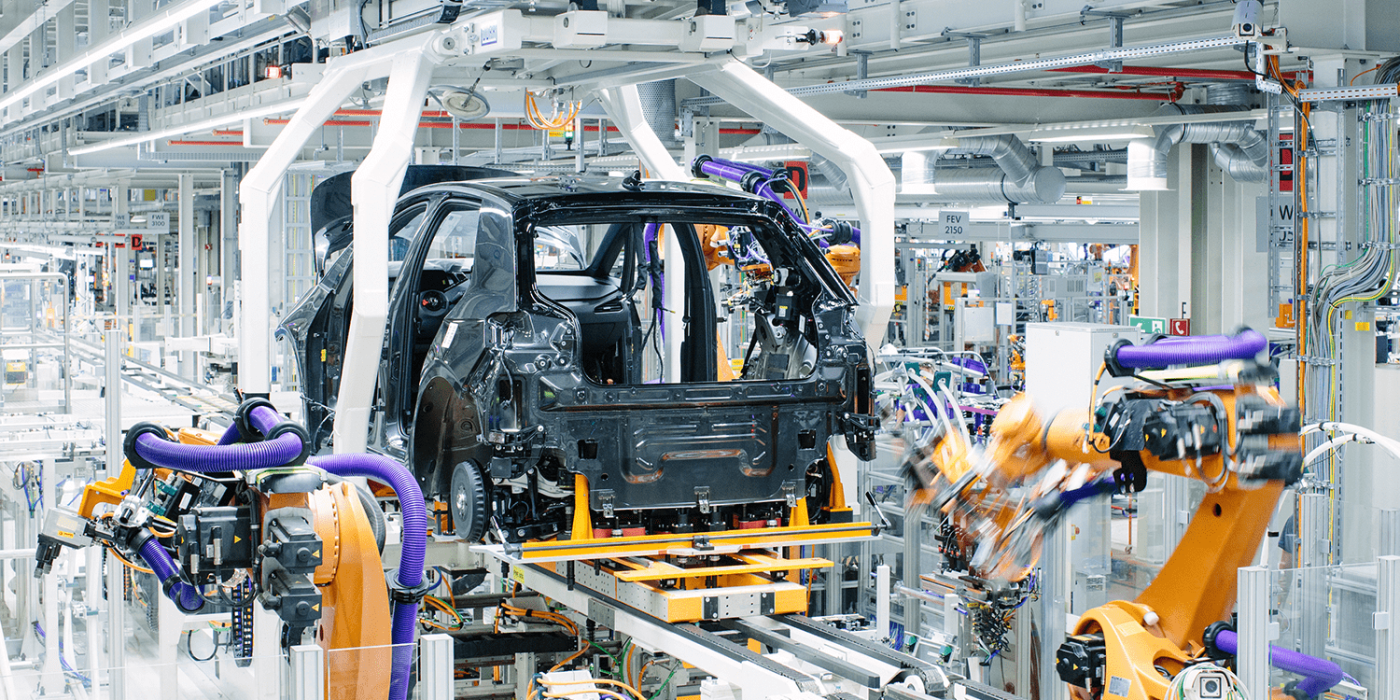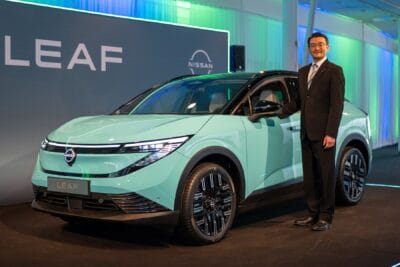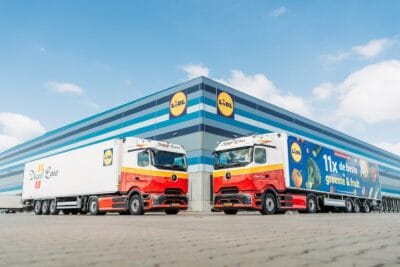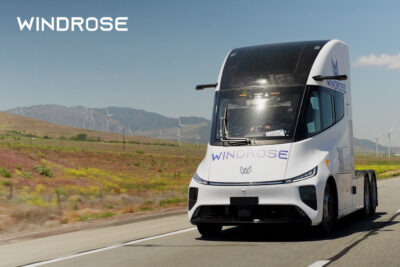War in Ukraine halts electric car supply chains
The Russian invasion of Ukraine has a devastating impact on the local population and is also affecting global supply chains. Missing parts are bringing assembly lines in Germany, the UK and the Czech Republic to a standstill.
++ This article has been updated. Kindly continue reading below. ++
Volkswagen felt the effects of the conflict almost immediately when parts made in Ukraine could not be delivered. A few days after the outbreak of hostilities, VW announced that production at the MEB plant in Zwickau would be halted as of this Tuesday – initially until Friday. MEB production in Dresden will also be suspended from Wednesday to Friday. Among other things, the German carmaker needs electrical cable harnesses from suppliers in Ukraine.
Volkswagen will put employees on short-time work for this period. How things will continue in the two German plants in Saxony is still being examined. So far, the situation has not eased up at all.
Elsewhere at Volkswagen, the Czech VW subsidiary Skoda also has to cut production because of a “critical shortage” of parts from Ukraine. The MEB SUV Enyaq is produced at the main plant in Mlada Boleslav and cannot be completed. At its usual full capacity, slightly more than 300 Enyaq and Enyaq Couapé vehicles are built there per day, while the Zwickau plant usually produces over 1,200 vehicles per day.
In western Ukraine, the contract manufacturer Eurocar also builds some combustion engine series, but production has since been discontinued. Skoda says it employs more than 600 Ukrainian workers in the Czech Republic. They are now to be supported with accommodation and health care (also for their relatives) or with visa applications.
In Russia, Skoda is still able to keep production at its two plants running, but production is apparently impeded by Western sanctions for Russia’s invasion of Ukraine. Russia was also Skoda’s second-largest market in 2021, with over 90,000 car sales there. The Ukraine was also a big market for Skoda. The company revealed that “The sales strategy in Russia and Ukraine is currently the subject of intensive discussions. Sales in both Ukraine and Russia can be expected to fall in view of recent developments.” .
While Volkswagen’s production is already affected, other manufacturers still have enough parts for a few days – but not much longer. BMW’s subsidiary Mini has announced that it will close its main plant in Oxford, in the UK for the whole of next week. The electric Mini Cooper SE is also built there, but according to a report by the BBC, all models built in Oxford are affected – production will be stopped “for all shifts” from 7 to 11 March.
BMW / Mini has not said exactly which components are missing at Mini, saying only that it was in contact with suppliers and was monitoring the situation very closely.
In the meantime, Volkswagen has set up a task force has been set up to assess further possible consequences for the supply chain.
Update 02 March 2022
At BMW, vehicle production in Munich (i4) and in Dingolfing (iX) will be at a standstill in the coming week. Adjustments to production shifts will also be necessary in Leipzig (i3), according to a spokesperson.
Meanwhile, Porsche is suspending car production at its Leipzig plant until the end of next week. The Panamera PHEV is affected in the area of electric vehicles. In Stuttgart-Zuffenhausen, where the Taycan is built, production will be maintained for the time being this week.
Update 07 March 2022
Audi has imposed an order freeze for its plug-in hybrids. “Due to the good demand and some restrictions caused by the supply situation, the production volume for the Audi PHEV models is currently already exhausted for the year 2022,” an Audi spokesperson explained. The aim is to guarantee reliable planning.
While Audi is referring to the semiconductors and the unclear situation regarding subsidies for the environmental bonus from 2023 onwards, and also denies a connection with the Ukraine war when asked. Dealers have been cited as saying, “that the war is definitely making the supply situation more difficult”.
Volkswagen has now also confirmed that no electric cars will be built at the VW plants in Zwickau and Dresden until at least 18 March. Due to the war in Ukraine, parts are still missing, which is why Volkswagen has to suspend production of the ID.3, ID.4, ID.5, Audi Q4 e-tron (and Sportback) as well as the Cupra Born for another two weeks. As a spokesperson explained, the short-time work is to continue until 18 March.
In the VW plants in Saxony, however, only the production of the MEB models is affected, as the cable harnesses for these are missing from the supplier Leoni, which manufactures them in two plants in western Ukraine. The production of engines in Chemnitz and the production of car bodies for Bentley and Lamborghini in Zwickau, on the other hand, continues without short-time work.
Update 08 March 2022
Following Audi, Volkswagen has also imposed an order freeze for plug-in hybrids. “Due to increasing order numbers for the plug-in hybrid models worldwide, the still poor supply of semiconductors and especially the current dramatic situation in Ukraine, a temporary order stop is unavoidable,” a letter sent to dealers reads.
Update 09 March 2022
After Porsche was initially only affected by the Leipzig plant, the carmaker now also has to stop production of the Taycan electric car at its main plant in Zuffenhausen. The reason is a lack of parts from Ukraine, which cannot be delivered due to the war there. As a spokesperson indicated, Taycan production was halted on Wednesday afternoon (March 9). Production is suspended until the end of next week on the is 18th of March. This means that 200 Taycans cannot be built per day.
However, the supply situation has improved for the Leipzig plant (including the Panamera e-Hybrid). Production is scheduled to restart there in the coming week with reduced operations.
Update 10 March 2022
The supply situation seems to be improving: not only for Porsche in Leipzig, but also BMW has announced that it will gradually restart production at its plants in Munich (e.g. i4) and Dingolfing (e.g. iX) next week. In the following week, from 21 March, production is to resume as normal. It is not known how BMW is planning to compensate for the missing wiring harnesses.
In Regensburg and Leipzig, production is running in one shift this week, and will return to normal with two shifts from next week. Mini production in Oxford will remain suspended for the next two weeks.
However, the Munich-based company does not want to give the all-clear yet: According to BMW, the situation remains volatile, the war in Ukraine and the known difficult semiconductor supply could “lead to further production adjustments in our plants”.
carscoops.com, reuters.com, bbc.com, automobilwoche.de (in German), reuters.com (both update), carscoops.com, automobilwoche.de (both update II), automobilwoche.de, automobilwoche.de (both in German, update III), reuters.com (Update IV), reuters.com (Update V)





0 Comments